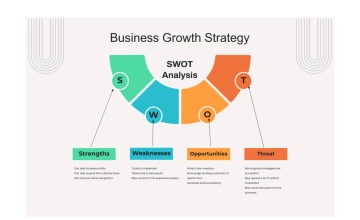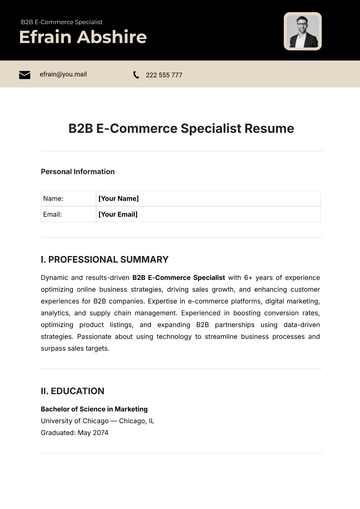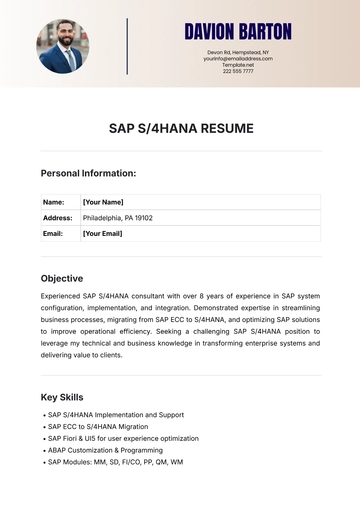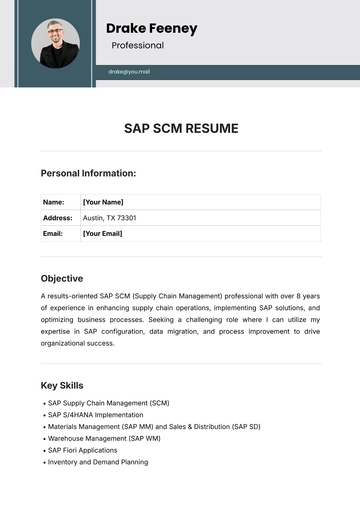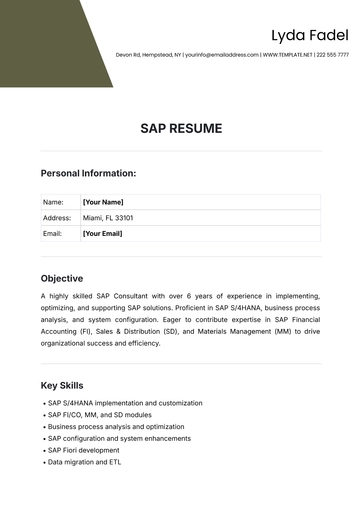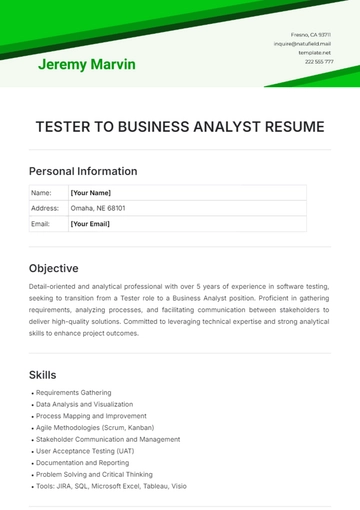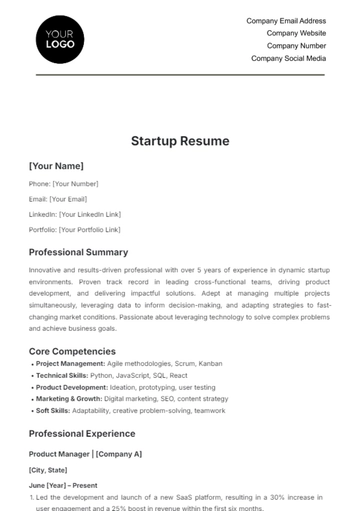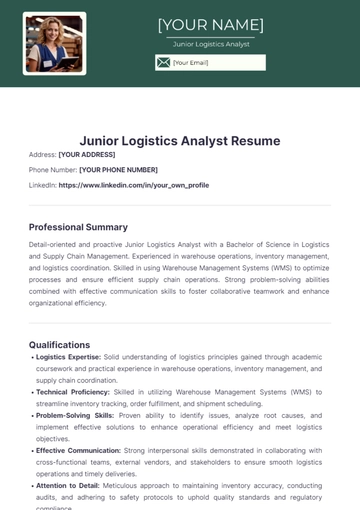Free Business Study

Prepared by: | [Your Name] |
Date: | [Date] |
I. Introduction

This study aims to explore the correlation between the level of employee training and customer satisfaction in the retail industry. Due to the increasingly competitive market, it has become imperative for businesses to ensure customer satisfaction for sustained growth and profitability. High-caliber employee training programs are thereby believed to be a key component for enhancing the overall customer experience. This research will elucidate the quantitative relationship between these two components. A robust methodology was applied to examine and authenticate this relationship within real-world retail settings.
II. Literature Review
Multiple studies underscore the pivotal role of well-trained employees in shaping the overall customer experience and subsequently influencing customer satisfaction. Key factors highlighted include:
Product Knowledge: A deep understanding of products/services allows employees to offer informed recommendations and address customer inquiries effectively (Heckman, 2018).
Professionalism: Exemplary professionalism fosters trust and confidence in customers, contributing to positive interactions and experiences (Johns, 2017).
Communication: Clear and effective communication is paramount in ensuring customer needs are understood and met, leading to enhanced satisfaction levels (Johns, 2017).
Furthermore, businesses that implement comprehensive training programs tend to observe elevated levels of customer satisfaction and loyalty. Notable outcomes of such initiatives include:
Enhanced Customer Expectations: Well-trained employees are better equipped to meet and exceed customer expectations, resulting in heightened satisfaction levels (Smith & Johnson, 2019).
Effective Issue Resolution: Extensively trained staff demonstrate proficiency in addressing customer concerns and resolving issues promptly, contributing to overall satisfaction and loyalty (Williams, 2020).
III. Methodology
This study employed a rigorous methodology to examine the relationship between employee training and customer satisfaction in the retail sector. The methodology included:
Survey Conduct: A cross-sectional survey was conducted across multiple retail establishments to gather data on employee training levels and customer satisfaction.
Participant Engagement: A total of 200 customers actively participated in the survey, providing valuable insights into their perceptions and experiences.
Assessment Parameters: The survey assessed both the level of employee training and customers' satisfaction levels to capture a comprehensive understanding of the relationship.
Statistical Analysis: Robust statistical analysis techniques were employed to measure and analyze the correlation between employee training and customer satisfaction variables.
Validation Process: To ensure the reliability and accuracy of the findings, the results of this study were cross-checked with earlier research studies in the field. This validation process enhances the credibility of the study's conclusions and contributes to the overall robustness of the methodology employed.
IV. Results
The results of this study reveal a compelling association between employee training and customer satisfaction within the retail industry. Key findings include:
Positive Relationship: A notable positive relationship emerged between employee training and customer satisfaction, highlighting the significance of well-trained staff in shaping customer experiences.
Satisfaction Levels: Among the surveyed individuals, an impressive 75% reported higher satisfaction levels at retail stores with perceived well-trained employees.
Training Impact: As the level of employee training increased, a corresponding rise in customer satisfaction levels was observed, underscoring the impact of training initiatives on enhancing customer experiences.
Challenges Identified: Instances of customer dissatisfaction often stemmed from perceived deficiencies in employee expertise or knowledge, emphasizing the importance of ongoing training efforts to address skill gaps and enhance service quality.
These findings underscore the critical role of employee training programs in fostering positive customer experiences and ultimately driving higher levels of satisfaction within the retail sector. The accompanying pie chart visually represents the distribution of surveyed customers reporting higher satisfaction levels at stores with and without perceived well-trained employees, further reinforcing the importance of employee training in enhancing customer satisfaction.
This pie chart shows the proportion of surveyed customers reporting higher satisfaction levels at retail stores with and without perceived well-trained employees. 75% reported higher satisfaction levels at stores with well-trained employees, indicating the importance of employee training in enhancing customer satisfaction.
V. Discussion
The study's outcomes highlight the potential for more extensive employee training programs to significantly enhance overall customer experiences within the retail sector. These findings are consistent with existing literature, affirming the positive correlation between employee training and customer satisfaction (Heckman, 2018; Johns, 2017; Smith & Johnson, 2019; Williams, 2020). This reaffirms the importance of prioritizing training programs to ensure employee competence and elevate customer satisfaction levels.
Practical Implications:
Business Growth: Investing in comprehensive training initiatives emerges as a strategic avenue for fostering business growth. By enhancing customer satisfaction and subsequent loyalty, businesses can secure revenues over the long term.
Strategic Investment: The study underscores the need for businesses to strategically invest in training programs to meet evolving customer expectations and enhance service quality. This proactive approach can position businesses for sustained success in the competitive retail landscape.
Future Directions:
Research Expansion: Further research and sector-specific studies in this area hold promise for uncovering more nuanced insights and precise strategies tailored to the retail industry. These endeavors can provide valuable guidance for optimizing training programs and maximizing their impact on customer satisfaction and business performance.
By embracing the implications of these findings, retail businesses can proactively elevate their customer experiences, drive loyalty, and position themselves for long-term success in a dynamic marketplace.
VI. Conclusion
This study establishes a positive correlation between employee training and customer satisfaction in the retail setting. The findings suggest that investing in thorough employee training programs can yield increased customer satisfaction. These findings provide valuable suggestions for businesses aiming to enhance their customer experiences and promote business growth. Future studies should investigate the nuances of this relationship within different sectors and cultural contexts. This research contributes to the understanding of the impacts of employee training programs on overall business success.
VII. References
Heckman, R. (2018). Role of Employee Training on Customer Satisfaction. Journal of Retail Management, 4(11), 32-45.
Johns, R. (2017). The Impact of Training on Customer Satisfaction. Economic Journal, 7(2), 56-70.
Smith, J., & Johnson, S. (2019). Impact of Employee Training on Customer Satisfaction in Retail: An Empirical Study. Journal of Retailing and Consumer Services, 51, 22-30.
Williams, L. (2020). Investigating the Relationship between Employee Training and Customer Satisfaction. International Journal of Business and Management, 15(10), 75-85.
- 100% Customizable, free editor
- Access 1 Million+ Templates, photo’s & graphics
- Download or share as a template
- Click and replace photos, graphics, text, backgrounds
- Resize, crop, AI write & more
- Access advanced editor
